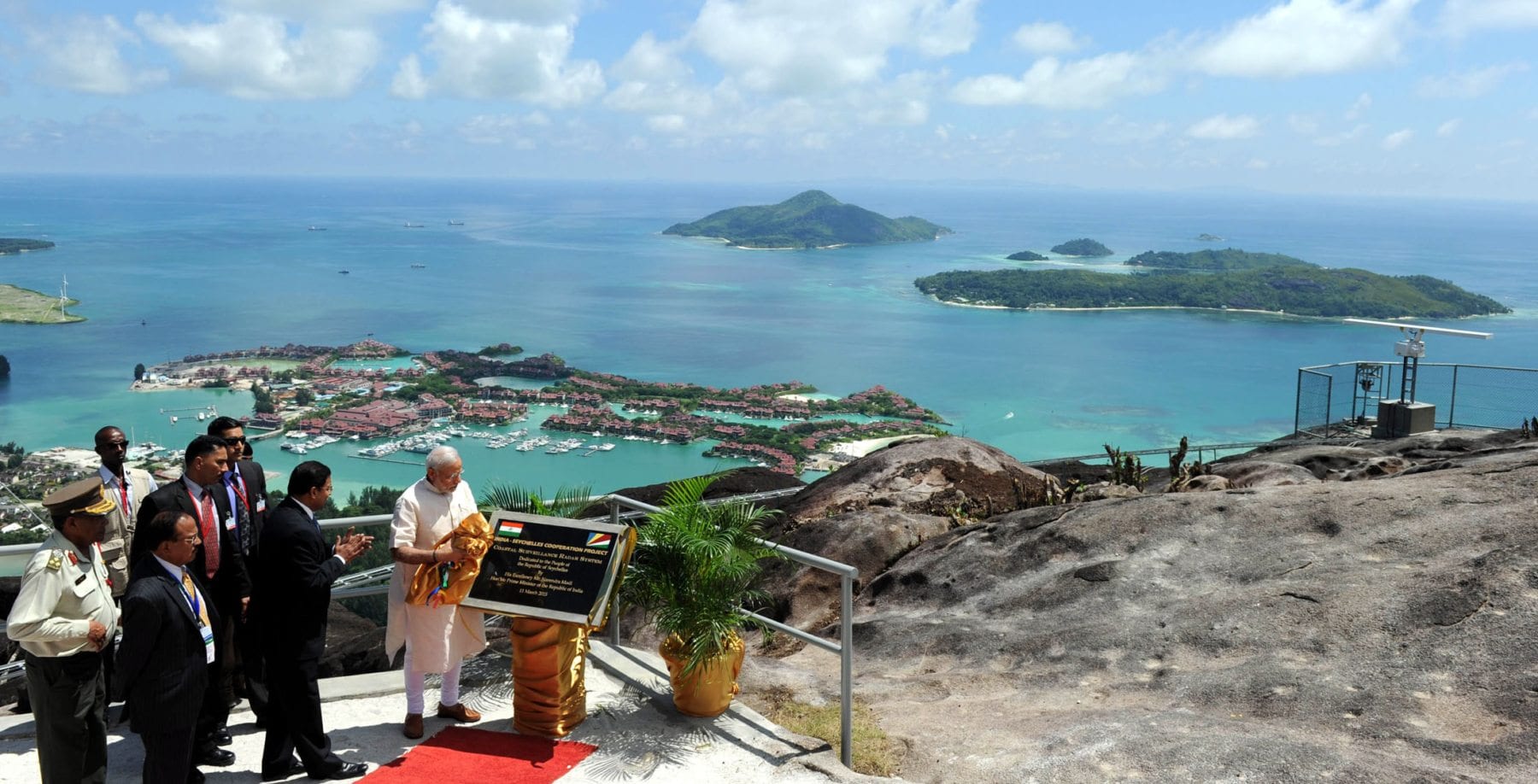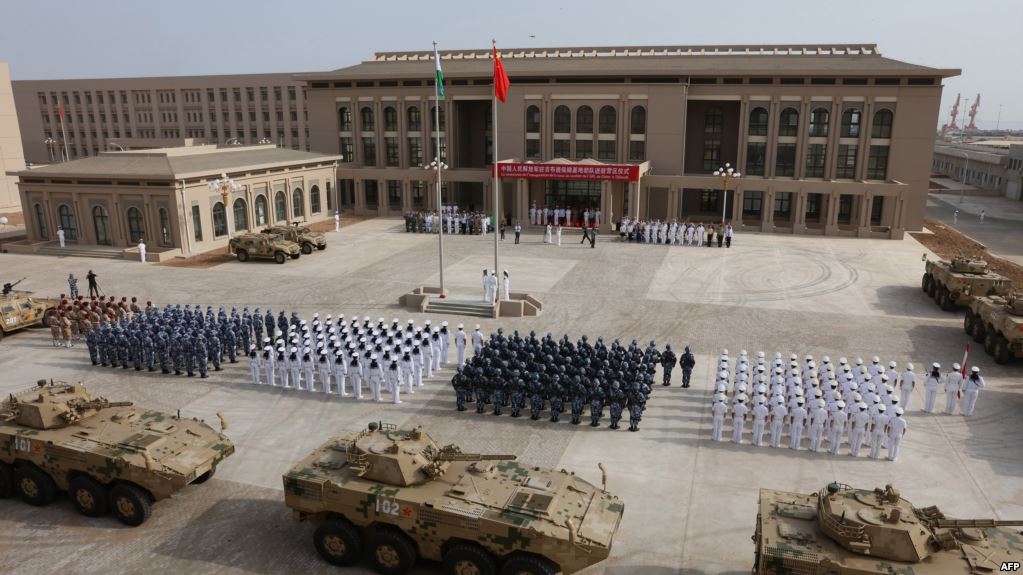Back in January, India and Seychelles signed an agreement to build and operate a joint military facility on an island named Assomption, located just north of Madagascar, with the stated purpose of putting an end to piracy around the East African part of the Indian Ocean. Earlier this week, however, Seychelles abandoned the agreement with pressure mounting from the island’s opposition party.
The decision came one week after Seychellois opposition leader Wavel Ramkalawan, who had visited New Delhi in January to discuss the proposal, declared the deal “dead.” Shortly after that, President Danny Faure said he would not fight opposition on the project. While an agreement between Seychelles and India had been signed in January, the project still awaited a vote in the country’s parliament to be fully ratified.
“I hope I have made it clear that this is the end of the Assomption agreement and that I don’t expect to see it on any agenda between President Faure and the opposition,” Mr. Ramkalawan announced in the National Assembly.
Seychelles is only the latest Indian Ocean nation to be drawn into the scramble for influence between India and China, joining the Maldives, whose China-backed president touched off a constitutional crisis last month with the arrest of several judges. In addition, China is increasingly active in the countries surrounding India; Sri Lanka’s government is cooperating with China for port infrastructure, Nepal’s communist party won a major electoral victory, turning the country towards China, and Pakistan has become a primary recipient of Chinese weaponry.

However, as China and India maneuver for influence in the Indian Ocean, the contest has gradually taken on a more militaristic dimension. Last year, China completed construction on its first overseas military base in Djibouti, perfectly perched on the global shipping lanes between the Red Sea and Suez Canal. Indian President Narendra Modi first announced his plans for the military base in the Seychelles in 2015.
“This agreement would potentially allow for a greater arc of surveillance to curb piracy and other illegal activities in the exclusive economic zone of Seychelles. It would also burnish India’s credibility as a collective security stakeholder,” Uday Bhaskar, retired Indian navy officer and defence expert, told Al Jazeera.

India’s brandished shows of control and intervention in the Indian Ocean are nothing new. In 1988, for instance, after nearly 100 mercenaries had taken over the Maldivian capital of Malé, the Indian prime minister immediately dispatched 1,600 paratroopers to restore order in the capital. The operation, which was ultimately successful, received international praise from around the world. India had also intervened in the Sri Lankan Civil War in the late 1980s, and drove Portugal from its colonial possessions in 1961. All of these actions, aside from preserving the peace, also demonstrate India’s desire to project itself as a regional power.
Recently, however, the Indian military had chosen not to intervene in the Maldives’ constitutional crisis, despite overwhelming condemnation in India, which opened the door for China to send warships to the Maldives in a show of strength and defiance against India. While the political atmosphere in the Seychelles may not be as volatile, Indian officials do not want to lose any footholds in that nation either.
“It is clear that India wants to establish a military base in Assomption to monitor the traffic in the Mozambique channel in the Indian Ocean and to especially monitor the energy transport of China around the world,” said Ralph Volcere, a political activist and former opposition politician who has led the demonstrations against the Indian base. “Seychelles, a small island with only 90,000 people, cannot afford to be taking sides. We are not pro-India, anti-India, pro-Chinese, anti-Chinese. We are only pro-Seychelles.”
Protests against the Assomption island project ramped up in December when details of the planned military base leaked to the public in a Youtube video. Even though the January agreement included compromises to make the base more palatable (the base could not be used in a war, nor could it house nuclear weapons), protests continued into 2018. Those opposed to the deal say the project cedes too much land to a foreign government, in addition to being too close to the Aldabra atoll, which is home to the world’s largest population of giant tortoises.
Regardless of the reasons, India will likely be looking to compensate for its loss in the Seychelles with other projects in small, neighboring countries, such as Nepal, Bhutan and Bangladesh. That would put the country in direct competition with China, however, which has been pumping billions into infrastructure projects and financial aid packages, everywhere from the Congo to Pakistan.
[Title image: James Fox (Lima Charlie News)]
LIMA CHARLIE NEWS
Lima Charlie provides global news, insight & analysis by military veterans and service members Worldwide.
For up-to-date news, please follow us on twitter at @LimaCharlieNews

![Image India losing foothold in Seychelles amidst brewing conflict with China [Image: James Fox [Lima Charlie News]](https://limacharlienews.com/wp-content/uploads/2018/03/IndiaSeychelles.jpg)
![image Resistance mounts against China's President Xi Jinping [Lima Charlie News][Photo: Johannes Eisele / AFP]](https://limacharlienews.com/wp-content/uploads/2018/08/Resistance-mounts-against-Chinas-President-Xi-Jinping-480x384.jpg)
![Image Little choice for Russia and China but to link up [Lima Charlie News]](https://limacharlienews.com/wp-content/uploads/2018/09/headlineImage.adapt_.1460.high_.russia_china_opinion_052114.1400674740238-480x384.jpg)
![Image Critics of India's ruling government rounded up in raids [Lima Charlie News][Image: AFP]](https://limacharlienews.com/wp-content/uploads/2018/09/Critics-of-Indias-ruling-government-rounded-up-in-raids-480x384.jpg)
![Africa’s Elections | In Malawi, food, land, corruption dominate [Lima Charlie News]](https://limacharlienews.com/wp-content/uploads/2019/06/Malawi-election-Food-land-corruption-480x384.jpg)
![Image The Rwandan Jewel - Peacekeepers, Conflict Minerals and Lots of Foreign Aid [Lima Charlie World]](https://limacharlienews.com/wp-content/uploads/2019/03/Rwanda-Jewel-480x384.jpg)
![Image [Women's Day Warriors - Africa's queens, rebels and freedom fighters][Lima Charlie News]](https://limacharlienews.com/wp-content/uploads/2019/03/Womens-Day-Warriors-Lima-Charlie-News-480x384.jpg)
![Image Zimbabwe’s Election - Is there a path ahead? [Lima Charlie News]](https://limacharlienews.com/wp-content/uploads/2018/09/Zimbabwe’s-Election-Is-there-a-path-ahead-Lima-Charlie-News-480x384.png)
![[Silver lining for China in Zimbabwe’s violent elections][Lima Charlie News]](https://limacharlienews.com/wp-content/uploads/2018/08/Screen-Shot-2018-08-02-at-12.51.35-PM-480x384.png)
![image Resistance mounts against China's President Xi Jinping [Lima Charlie News][Photo: Johannes Eisele / AFP]](https://limacharlienews.com/wp-content/uploads/2018/08/Resistance-mounts-against-Chinas-President-Xi-Jinping-150x100.jpg)
![Image Little choice for Russia and China but to link up [Lima Charlie News]](https://limacharlienews.com/wp-content/uploads/2018/09/headlineImage.adapt_.1460.high_.russia_china_opinion_052114.1400674740238-150x100.jpg)